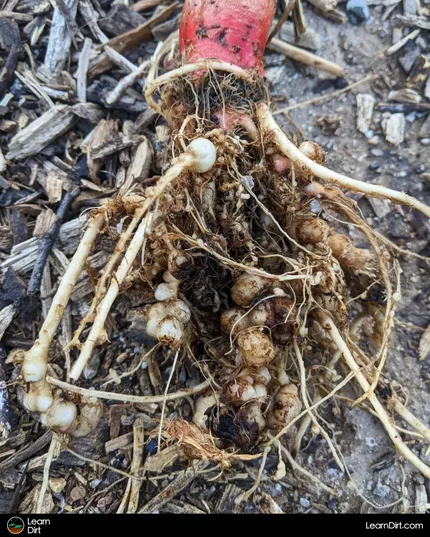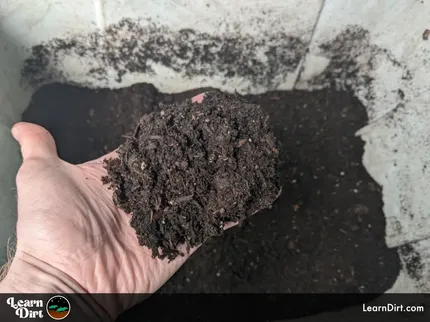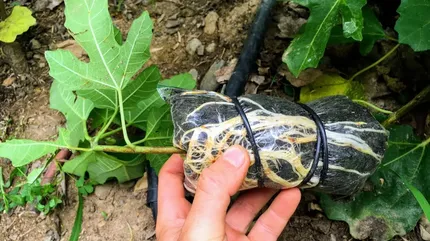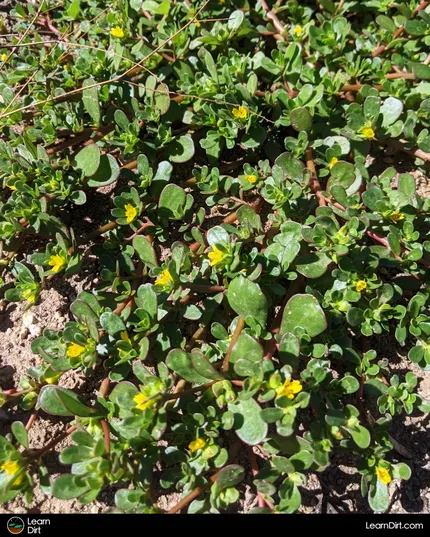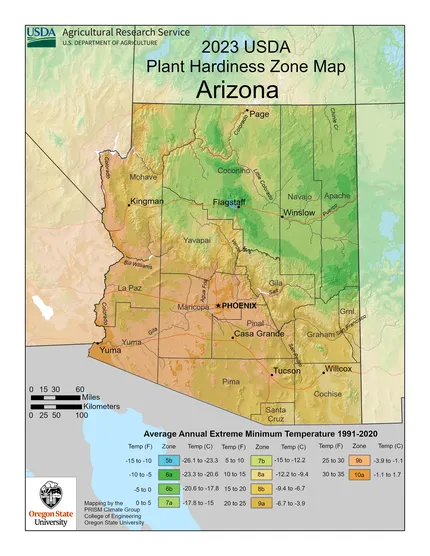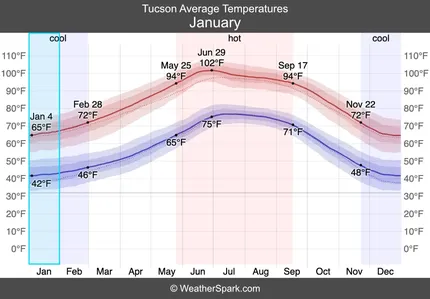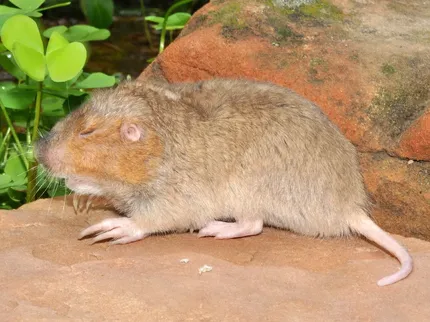Table of Contents
* Our articles never contain AI-generated slop *
If you've got cucumber beetles wreaking havoc in your garden, you're in the right place.
Let's talk about some natural ways you can deal with these menaces without reaching for pesticides or harming beneficial species in the process.
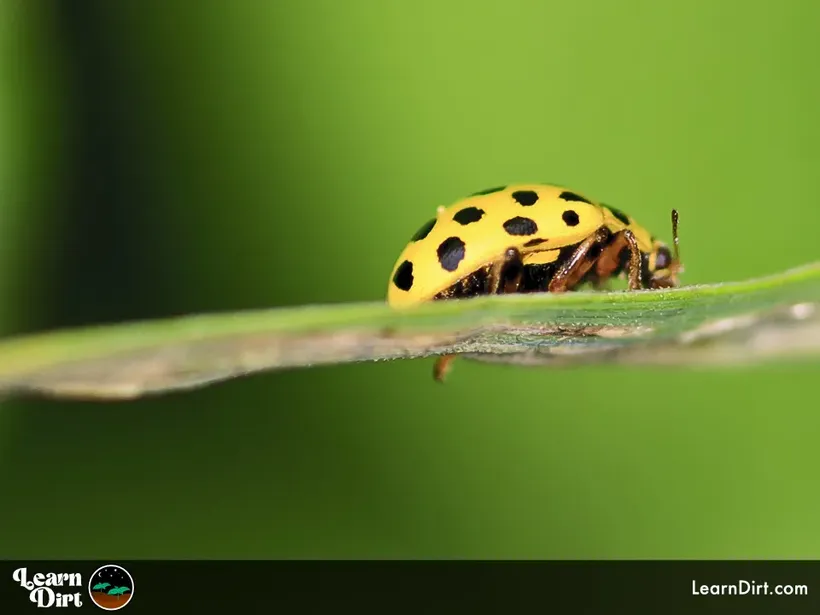
Diatomaceous Earth for Cucumber Beetles
You may have seen diatomaceous Earth (DE) cited commonly as a cure-all for a broad range of pest problems.
Disclaimer: This post may contain affiliate links. Refer to the privacy policy for more information.
While it's true that DE works to rid your garden of many pests - it will also rid your garden of just as many beneficial insects.
Because diatomaceous Earth has an indiscriminate method af action (it damages the carapace of most insects), it causes just as much harm to the "good" insects as the "bad."
For this reason I don't personally use it in my garden. I don't find my ecosystem to be mor productive when I reduce insect numbers across the spectrum. Instead, I strive for balance in my garden.
Cucumber Beetle Predators
Instead of resorting to harmful pesticides, indiscriminate sticky cards, and diatomaceous earth, let's chat about a better and more sustainable solution.
I'm talking of course about the power of beneficial insects!
Let's learn a little about these incredible garden allies.
Join The Grower's Community
Looking for a place to meet growers,
ask questions, share knowledge, be heard,
and feel like you belong? 🌱
Check It Out!
balanced ecosystem is one in which pest populations are kept in check naturally by predators.
When you're able to achieve equilibrium in your garden ecosystem, you won't need to resort to fighting pests by hand.
Let your ecosystem work for you by striving to attain balance, not perfection.
By treating predatory insects right, they'll do almost all of the hard work of keeping pest populations (like cucumber beetles) under control and balanced.
The following list is full of beneficial predators who all love to chow down on cucumber beetles. Learn to attract these beneficials and provide habitat and refuge for them in your garden.
Soldier Beetles
Soldier beetles are a great line of defense again cucumber beetles, so be on the lookout for their presence in your garden or on your farm.
Soldier beetles chow down on adult cucumber beetles as well as the larvae, so they're a friend to any gardener with pest problems.
Soldier beetles are attracted to a variety of flowers, which they use as a supplemental food source. For this reason, planting a diverse array of flowers in your garden will help you to attract these helpful bugs. Marigolds and sunflowers are classic choices, but the wider the diversity of flowers on your land, the better.
Work on habitat by incorporating insectary plants which provide shelter and alternative food sources.
This is going to help you ensure that your new soldier beetle friends feel right at home in your garden
Lady Beetles
Everyone knows and loves lady beetles, commonly called ladybugs. Super distinct and known for their aphid appetite, lady beetles also chow down on other soft-bodied pests, including the dastardly cucumber beetle.
Ladybugs are drawn to pollen and nectar from flowering plants like dill, cilantro, and yarrow.
Think about planting these companion plants near your cucumbers & cucurbits to entice ladybugs to come join your team and help with your cucumber beetle problem.
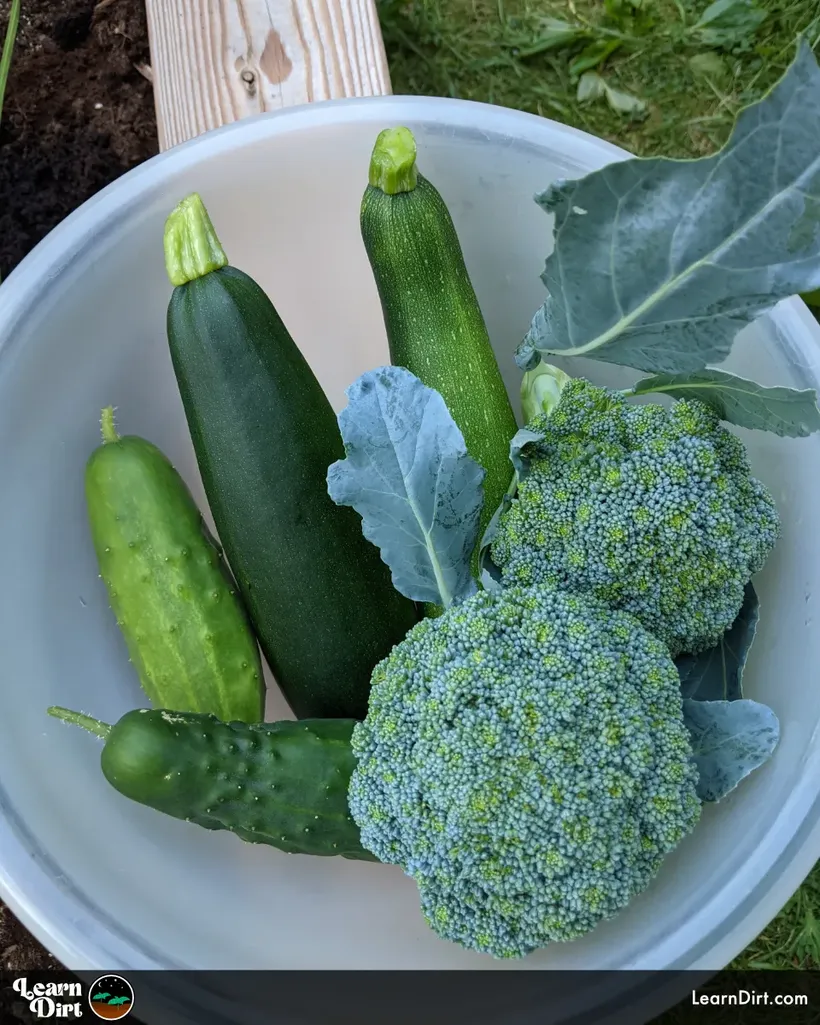
I also find ladybugs really love buckwheat flowers, and always see them huffing nectar off the white buckwheat blooms. It's nice when your cover crops help feed your predator populations!
Green Lacewings
Every garden or farm should have lacewings. Not only do they help control cucumber beetle and other pest populations - they look great while doing it!
Gently floating on the breeze with their distinct color and look, lacewings are really one of your best allies for all manner of pest issues in the garden or on the farm.
Lacewings have a killer appetite for cucumber beetles, aphids, thrips, and plenty of other pests too. You'll want to befriend them and attract them to your agricultural projects if at all possible.
To attract green lacewings, give them shelter by incorporating hedgerows around your garden or other dense vegetation so they've got a place to chill when they aren't eating your problems.
Spined Soldier Bugs
Equipped with piercing mouthparts and a knack for hunting, the spined soldier bug is an exceptional cucumber beetle terminator.
These beneficial buggos are attracted to composite flowers like daisies and asters, which provide them with the nectar they need.
Offer a diversity of vegetation and a pesticide-free environment to ensure that the spined soldier bugs remain happy and active in your garden.
Dig Cool Merch?
Minute Pirate Bugs
Don't be fooled by their tiny size! Minute pirate bugs absolutely crush cucumber beetles and will quickly become your best friend in the garden.
Like some of the other predators listed here, minute pirate bugs chow down on a pretty wide variety of farm pests - aphids, thrips, mites, and cucumber beetles are all on the menu.
In order to attract minute pirate bugs, you're gonna want to lean on plants such as goldenrod, daisies, and alfalfa. These plants yield nectar that they'll dig, but also serve as a habitat for their prey. That ensures your new garden friends will have steady food and shelter while on their mission to help clean up your local pest populations.
Hoverflies
It's amazing to watch hoverflies buzz around your garden, gracefully floating like little hummingbirds.
Hoverflies, aka flower flies, are crucial allies in the fight against cucumber beetles.
Not just that, they're also spectacular pollinators and have a role to play in helping your garden or farm to thrive. Have you befriended hoverflies yet?
Like some beneficials, hoverflies are also a big help in their larval form. Called "aphid lions", these larval flower flies have an American-sized appetite for aphids, thrips, and even some caterpillars!
If you're looking to attract hoverflies, hook 'em up with some good nectar chow by growing daisies, lavender, and zinnias on your land.
These great little hover-bugs will come for the abundance of floral resources, and contribute to a balanced ecosystem as long as you keep them fed!
Plus they're dang-fun to observe hovering in place like little homie-helicopters.
Tachinid Flies
Tachinid flies might seem annoying or even gross, but they're much more valuable to you as a grower than any old fly. These are hunters which parasitize numerous garden pests, including your dreaded cucumber beetles.
These bristly little flies deposit their eggs on the bodies of their hosts, and the resulting larvae feast on the pest. Pretty gruesome, but it definitely leads to the demise of the things that are eating your plants.
Tachinids are also well-known as a consumer of cabbage loopers, yet another reason you'll want them around.
In order to attract tachinid flies, plant yourself a bunch of flowering herbs like parsley, cilantro, and dill. Tachinids love the tasty chow from these flowers. Not only do they serve as a food source for the adult flies, they also provide habitat for other great beneficial buggos.
Ground Beetles
Ground beetles wander the garden floor during the night, munching on a bunch of different pests, including obnoxious cucumber beetles.
Look for shiny black / metallic beetles on patrol at night to recognize these home-dogs.
I'd suggest you hook ground beetles up with some nice habitat so they feel safe in your spot. Grow ground cover plants like clover, alfalfa, low-growing herbs, and mulch for them to rummage through. Leaf-litter is great for ground beetles, they love it!
You're gonna give them shelter, moisture, hiding spots, and good hunting grounds with this approach. No better way to attract ground beetles to your garden than that. They'll thrive and help out with your cuke beetles and other problems too.
Braconid Wasps
Braconid wasps are itty bitty non-stinging wasps. These puppies are so small you'd mistake them for fruit flies. As usual with predators though, size ain't no indication of effectiveness!
Braconids lay eggs inside cucumber beetle larvae. This does not end well for those cucumber beetle larvae as you can imagine. Good way to keep the population balanced and in check.
These beneficial parasites love flowers with nectar like sweet alyssum, tansy, and yarrow. In arid and semi-arid regions they also sometimes show up just for water. Like neighborhood kids and raccoons alike, they may stick around if you feed them.
Planting a diverse array of these flowering plants, and you'll be giving them the necessary resources.
Support braconid wasps, and you'll help ensure effective control of cucumber beetles without the need for harmful chemicals in the garden!
Minute Wasp Parasitoids
Like braconids, minute wasp parasitoids are incredibly small. Almost unnoticeable. Their impact on cucumber beetles is not, however!
These are one of my favorite little critters. Mini wasps which lay their eggs straight in cucumber beetle larvae. It's super effective.
Don't worry, minute parasitoid wasps don't sting or bite people, you'll hardly even notice they're there. They're smaller than fruit flies - very small critters.
To attract minute wasp parasitoids, plant a variety of flowering plants. Some suggestions I've heard are goldenrod, tansy, and asters.
Incorporate these blooms into your garden, and you'll be inviting these tiny guardians to take up residence and chill. Once y'all are homies, they're going to protect your cucumbers from pest damage.
They are parasitize other nuisance pests, so do whatever you can to make them feel welcome in your garden.
Final Notes...
Some folks say that if you pick your cucumbers by day they'll release a pheromone which attracts cucumber beetles. For this reason, you could consider harvesting cucumbers at night where possible. Test this yourself and see if you notice any difference!
Focus on attracting beneficial buggos and giving them the right food sources, flowers, and habitat. If you help the beneficial predators, they'll make your garden or farm their home and help with all your pest problems in kind.
In this way you can cultivate a thriving ecosystem which naturally balances and controls cucumber beetles and other pests. Learn about all the beneficials in your area and how to recognize them. Their strength, weaknesses, what they need, and what they eat. All these allies will help you on your agricultural journey or mission.
Focus on attracting and supporting beneficial bugs native to your region, and ensure you're not introducing invasive species if you decide to purchase and introduce your own benny bugs.
Local diversity is key to dealing with pest problems, and embracing native plants to attract native predator insects is your best option for fighting against most pests. Let your local ecosystem balance your land on its own, and lend it aid in the form of food and shelter while it does.
Let's shepherd balanced regenerative ecosystems, regenerate our soils, sequester carbon, feed ourselves, our families, and our communities health food, and improve the health of our planet while doing it. Happy gardening, y'all!
Want to learn more about growing cucumbers? Check out our cucumber grow guide here.
Looking for ways to control other garden pests naturally? Check out the full guide here.
That's all for now, thanks for reading!
If you have any questions, comments, or would like to connect with fellow gardeners, head on over to the forum and post there.




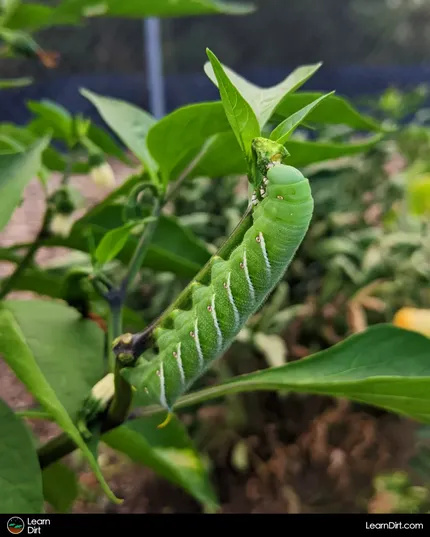
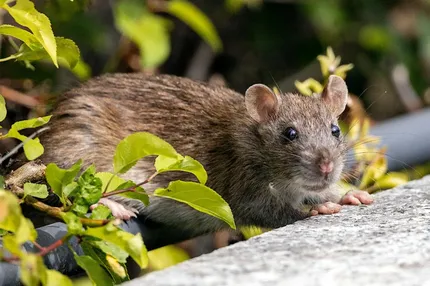
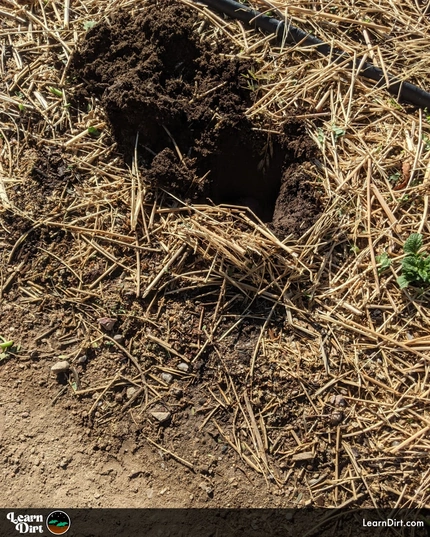

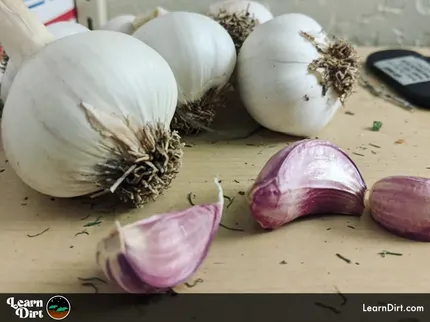
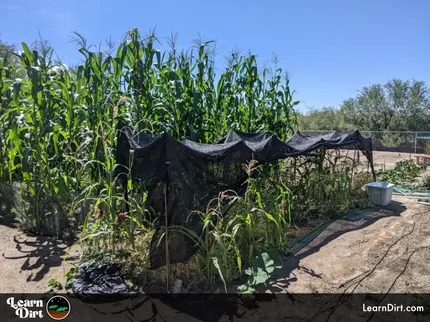
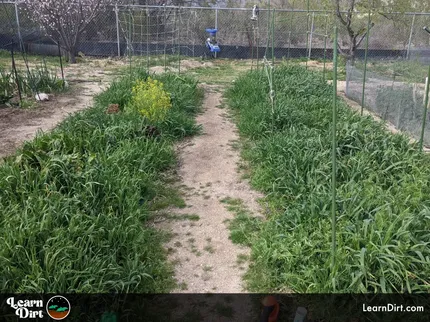
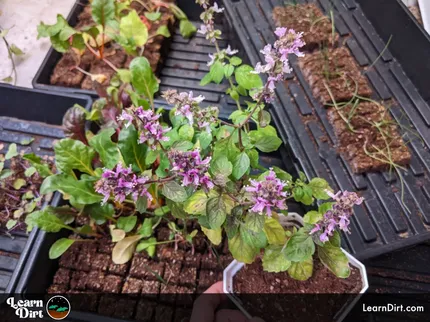
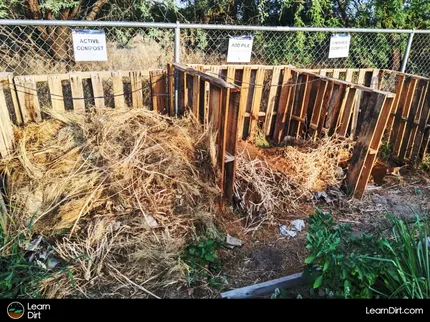
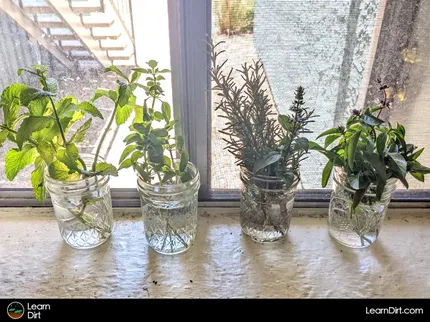
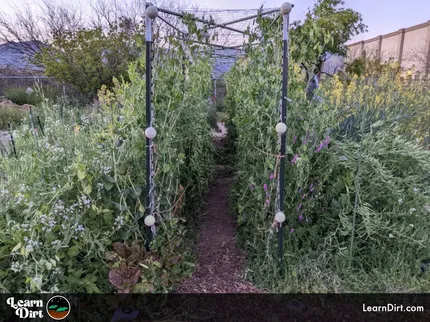
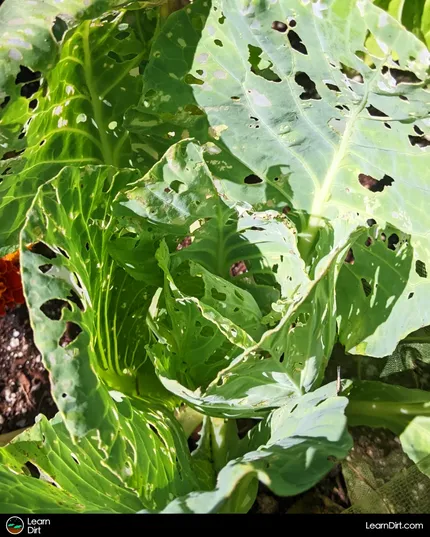

![Don't Till Away Your Carbon [Neon] Sticker](/media/product_images/dont-till-away-your-carbon-[neon]_sticker_260x260.png)

